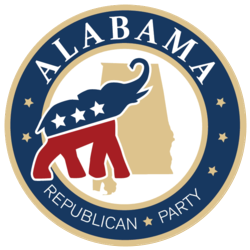|
Sign Up For Updates (Email)
Sign Up For Updates (SMS)
By sharing your phone number and/or email address, you consent to receive emails, calls, and texts from the Alabama Republican Party. You may opt-out at any time. Please see our Privacy Policy for more information.

